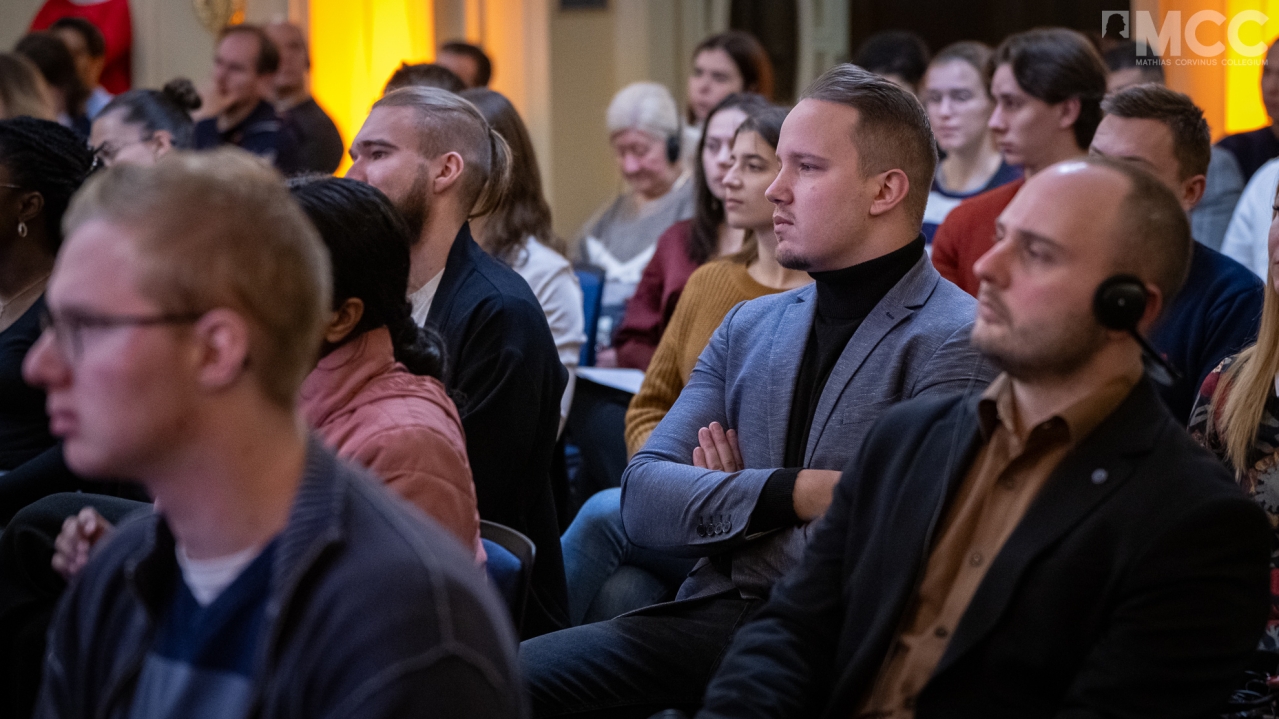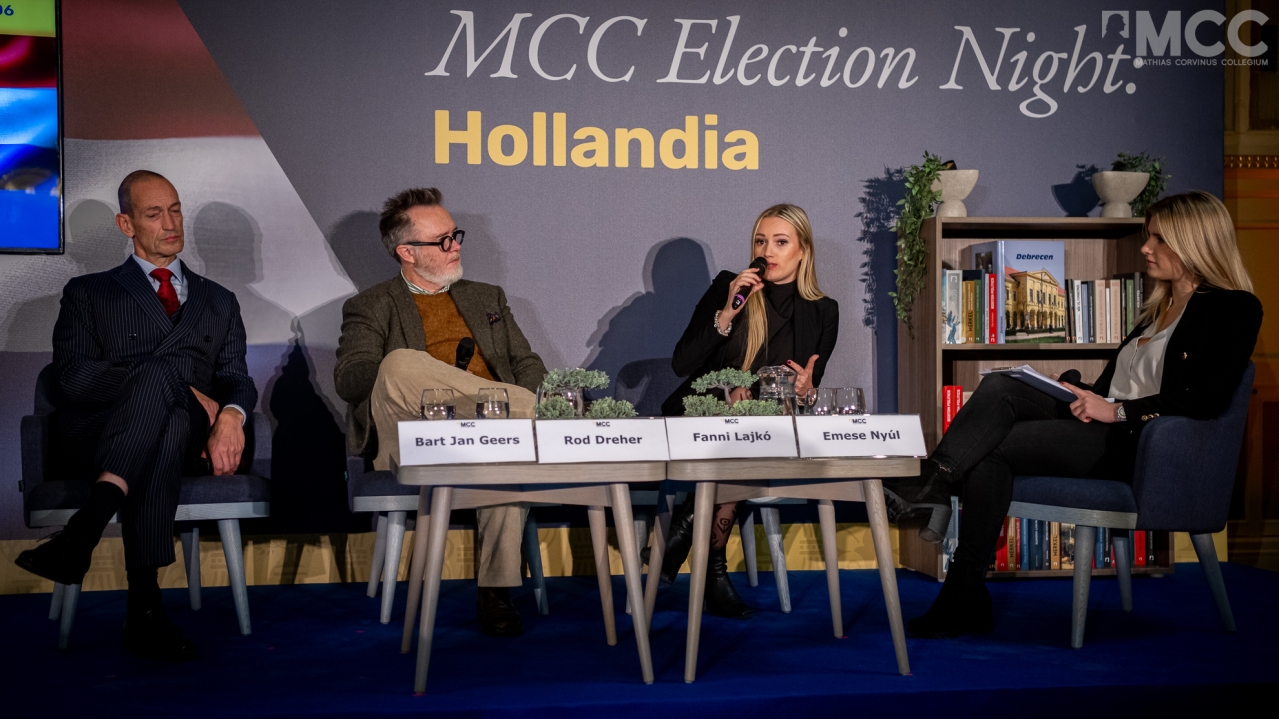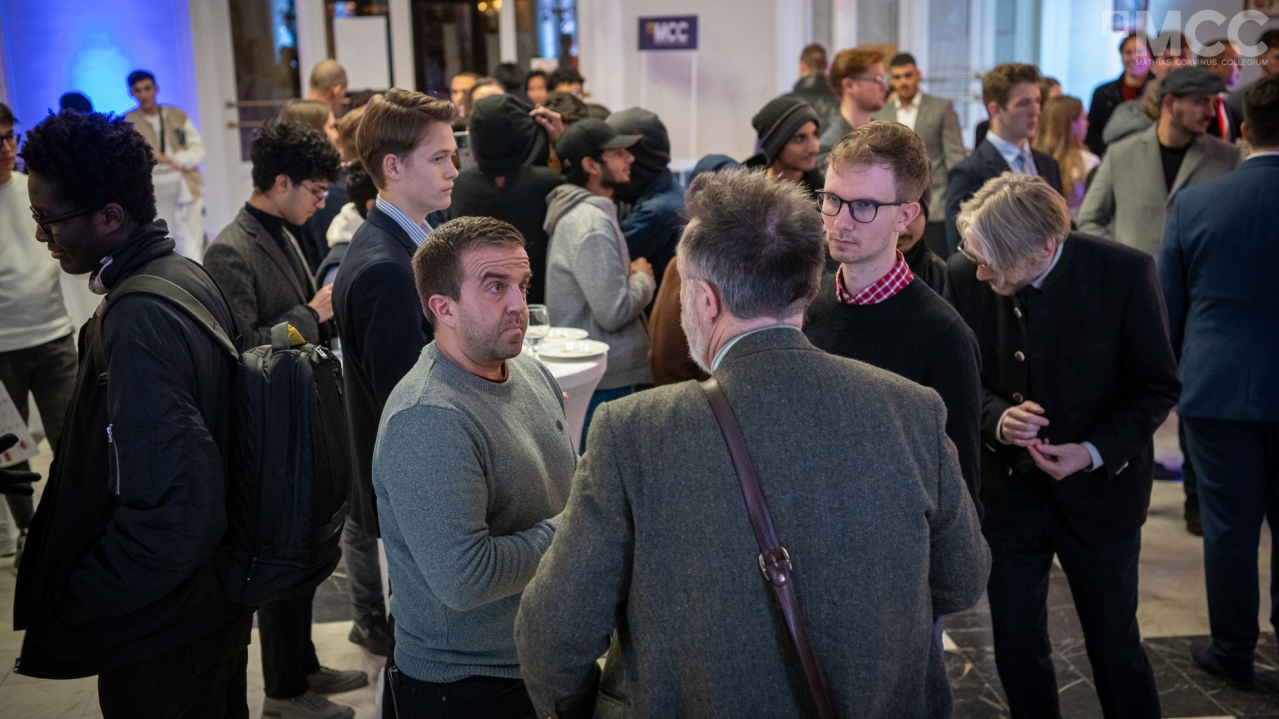Reading time: 2 minutes
With more than 130 attendees and the participation of 6 experts, MCC organized its first regional ‘Election Night’ event in Debrecen. At the fully packed local training center event, participants were able to gain a deeper insight into Dutch domestic politics, and the background of the groundbreaking election.
The evening was opened by István Ádám Bognár, head of MCC-Debrecen, followed by Eric Hendricks, a sociologist and researcher at the Danube Institute, who provided a brief overview of the Dutch electoral system and the current political situation. The expert explained that the Netherlands functions as a constitutional monarchy, with Mark Rutte serving as its Prime Minister and one of the longest-serving Prime Ministers in the EU. Currently, 16 parties are represented in the parliament, not including additional independent representatives. Hendricks pointed out that dynamic changes in the Dutch electoral scene and weekly fluctuations in popularity indices make analyzing the current situation in the Netherlands challenging. The leading parties (VVD, PVV, NSC, and the Labour-Green Left collaboration) dominate the majority of votes, but due to the specific nature of the Dutch electoral system, coalition negotiations are likely necessary for forming the government.
It was emphasized during the event that public trust is crucial in Dutch politics. In recent years, the coalition led by Mark Rutte faced numerous challenges, including the divisions caused by COVID-19 and with tensions within the government, particularly regarding the migration issue, have led to a low trust index. Massive immigration is not a new phenomenon in the Netherlands; it began in the 1960s when the Dutch government, along with Turkey and Morocco, reached an agreement on hosting guest workers. Currently, 5% of the Dutch population is of Moroccan or Turkish origin, while 2% is of Indonesian descent.
The past year marked a significant turning point, with approximately 400,000 people arriving in the Netherlands, and fewer than 180,000 leaving the country. Among the arrivals, over 100,000 came from Ukraine. Housing is also a significant issue, as official data indicates a shortage of 990,000 housing units in the market, and all political parties agree that this issue must be addressed in the upcoming election period.
During the event attendees were able to watch the live exit polls where it was revealed that the Freedom Party (PVV) led by Geert Wilders, received the most votes, initiating the start of coalition negotiations and marked a seismic change in Dutch politics.
















